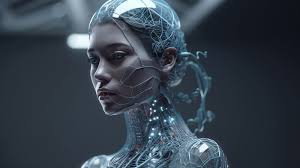The Evolution of Athletic Training
The sports industry continuously seeks innovative ways to enhance athlete performance, leading to a pivotal question: Can AI train athletes more effectively than human coaches?
AI-Driven Training: Precision and Analytics
AI systems offer precise, data-driven insights that human coaches may overlook. These systems utilize sensors, wearable technology, and advanced analytics to monitor athletes' performance in real-time. For instance, AI can analyze video footage to detect minute inefficiencies in an athlete's technique that are not visible to the naked eye.
Research shows that AI-driven feedback has led to performance improvements of up to 10% in sports like swimming and track, where biomechanical efficiency is paramount. Additionally, AI can process vast amounts of data from training sessions to predict and prevent potential injuries by identifying patterns that suggest fatigue or stress.
The Human Element: Experience and Emotional Support
Despite AI's analytical prowess, human coaches play an irreplaceable role in athlete development. They provide mentorship, emotional support, and motivation which are critical for athletes, especially in high-pressure situations. Human coaches also understand the subtle psychological cues that affect an athlete’s performance and morale, something AI is not equipped to manage.
In sports where strategy and adaptability are key, such as soccer or basketball, human coaches excel. They make real-time decisions based on dynamic game conditions, opponent behavior, and the psychological state of their players—areas where AI currently lacks depth.
Combining AI and Human Expertise
The integration of AI tools with human coaching is proving to be the most effective training method. AI can handle data analysis and provide detailed feedback on physical performance, while human coaches focus on tactics, strategy, and psychological support.
A notable example is the use of AI in Olympic training programs where athletes' techniques are analyzed by AI systems, and the insights are used by human coaches to adjust training strategies. This collaboration has led to enhanced performance outcomes and more personalized training regimens.
Ethical and Practical Considerations
While the benefits of AI in sports training are significant, they come with ethical and practical considerations. Dependence on technology must not overshadow the human aspect of sports, which celebrates human effort, resilience, and spirit.
Moreover, there is a need for regulations to ensure fair use of AI in competitive sports, preventing any form of digital doping where AI could give unfair advantages to some athletes over others.
Dive Deeper into AI and Human Coaching
For further exploration on whether AI or human coaches should dominate athletic training, check out AI or Human. This resource provides more in-depth discussions and comparisons on AI integration in various fields.
In conclusion, while AI brings valuable tools to athletic training, human coaches remain essential for their irreplaceable understanding of psychological dynamics and strategic decision-making. The future of sports training lies not in choosing between AI or humans but in leveraging the strengths of both to achieve optimal performance.
